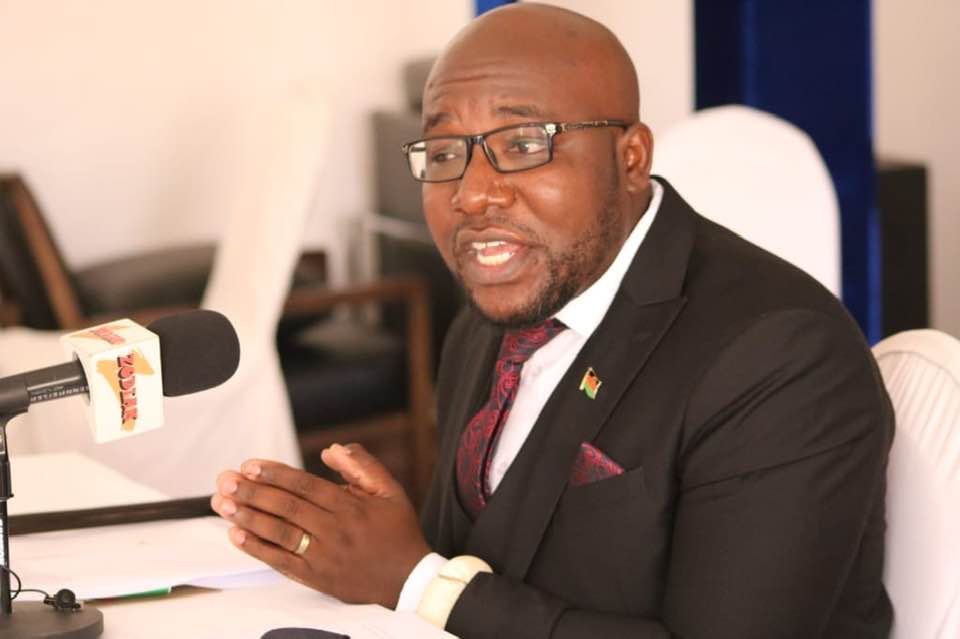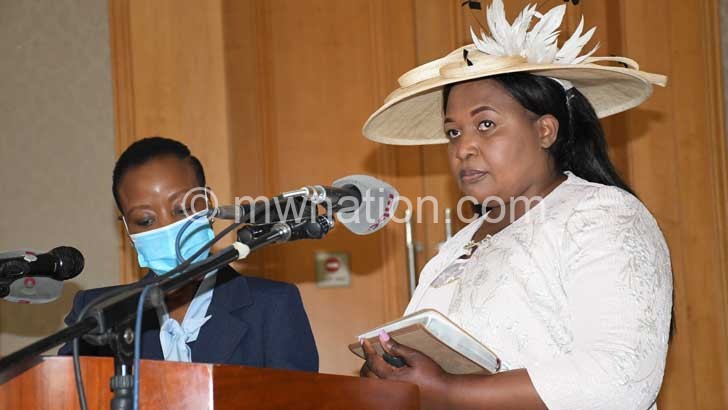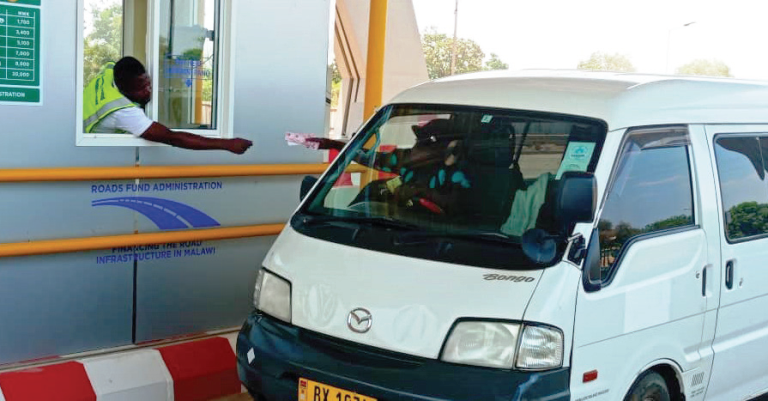Parliament on Tuesday unanimously passed the Peace and Unity Bill in a drive to promote peaceful coexistence and facilitate attainment of political, social, cultural and economic development in the country.
The Bill, tabled by Minister of National Unity Timothy Mtambo, proposes the establishment of the Malawi Peace and Unity Commission at national level as well as district peace and unity committees in each local government area and area peace and unity committees at community level.
Mtambo: It will deal with such issues
The commission will be responsible for providing leadership and capacity building for the district-level peace and unity committees as well as area peace and unity committees.
Mtambo said the new law will promote unity among Malawians through the peace and unity committees which will be key to resolving problems.
He said: “Malawi, as a country, has enjoyed relative, but not absolute peace which we would yearn for.
As a country, we have experienced episodes of tension that have emanated from differences in political ideology and affiliation, religious and traditional beliefs and belonging, land acquisition, chieftaincy ascendancy, property ownership and sports hooliganism, among others.
“Having in place firm infrastructure to build and preserve peace would help to prevent, deal with and manage such issues.”
Making his contribution, DPP spokesperson on legal affairs in Parliament Bright Msaka said the party supported the Bill because it will help the country achieve the desire for peace and co-existence.
Msaka: DPP is not a stranger to the Bill
“DPP is not a stranger to the Bill. In fact, this is our baby,” he said.
But Msaka faulted some elements in the Bill, including the independence of the commission that will be established, saying the line minister, as a politician, should not be involved in the appointment of commissioners.
He said: “Parliament should be the one to come up with commissioners. Since Parliament represents all Malawians, it will be the best for the country.”
Msaka added that the commission should be given powers to investigate past atrocities because some of the atrocities have influenced the country’s current challenges.
He also called for inclusion of the academia and suggested the removal of a recommendation that chiefs can only be appointed into the commission if they have a university degree.
Taking her turn, United Democratic Front (UDF) spokesperson in Parliament Lilian Patel also said UDF believed the Bill will help promote peaceful co-existence in the country.
She said in recent years, there have been tensions based on culture, religion and skin colour which, if left unchecked, could lead to chaos.
Said Patel: “The elderly are being killed on allegations of witchcraft. We have also seen our brothers and sisters with albinism being killed. We don’t know what next.”
Individual legislators also supported the Bill.Mtambo commended the parties and legislators for supporting the Bill.
He supported Msaka’s position that the commission should be independent, saying to ensure its independence, interested groups will be nominating names of the commissioners.
The minister said the President will then appoint the commissioners from the names given before they are confirmed by the Public Appointments Committee of Parliament.
On the question of addressing past atrocities, Mtambo said the law will not be applied retrospectively. However, he said there is a programme to handle past atrocities.
Commenting on the Bill in an interview on Tuesday, Livingstonia Synod Church and Society Programme executive director Moses Mkandawire commended Parliament for passing the Bill.
However, Mkandawire, who is also a Peace and Conflict Studies lecturer at the University of Livingstonia, said government should have strengthed the Malawi Human Rights Commission peace desk instead of having new structures which he feared will put pressure on the limited resources.
It comes against a background of Malawi developing a National Peace Architecture which envisioned creation of national and district peace committees.
The National Peace Archtecture was developed in the face of the July 20 2011 anti-government protests which created tension. It was meant to coordinate peace building mechanism.
The post MPs validate peace drive appeared first on The Nation Online.
 Moni Malawi
Moni Malawi 

